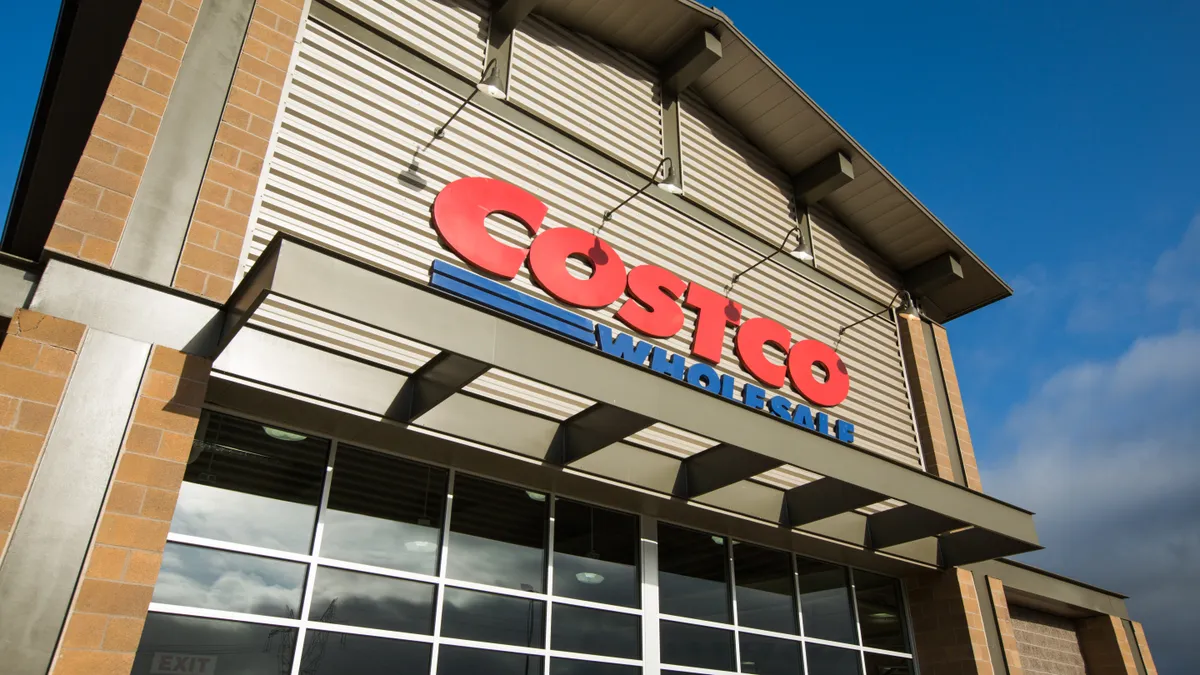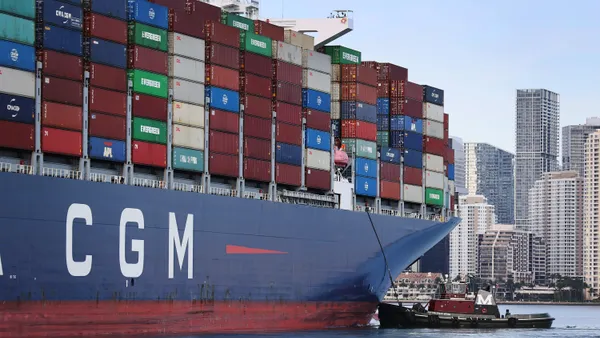Dive Brief:
- The procurement team at Costco is "working, in some cases, around the clock to procure supplies for both existing suppliers and from other sources where possible" to keep up with the demand created by the COVID-19 outbreak, Costco CFO Richard Galanti said on the company's earnings call Thursday.
- The retailer is managing its inventory by, at times, placing limits on the number of items a customer can purchase. It is also "shifting SKUs to alternative items and categories," Galanti said.
- The increased demand has resulted in out-of-stocks on a daily basis for the retailer that is also struggling with impacts on its sourcing from China. Factories Costco relies on have cut back on production levels, but Galanti told investors they are beginning to return to normal. "But again," he said, "it's improving and this still has a little ways to go."
Dive Insight:
Costco's situation highlights how a retailer's supply chain can experience a multitude of challenges when faced with a force majeure event like COVID-19, an illness in the coronavirus family. Shoppers are turning to Costco to stock their pantries, but Costco is already dealing with the impact the outbreak has had on manufacturing and logistics in China.
Exporting U.S.-manufactured items to Asia and Australia has "been a little bit of a challenge because of some container shortages here," Galanti said.
Part of Costco's plan for dealing with the snarled supply lines has been an increased reliance on air freight. The retailer has seen increased airfreight cost while Chinese ocean ports were operating are lower than normal levels, Galanti said on the call. There are signs this week that operations are beginning to return to normal at Chinese ports.
Costco is also leaning on its suppliers with Galanti telling analysts that suppliers are working overtime to produce and ship to the retailer.
When asked if the retailer's supply chain can handle in uptick in demand, Galanti said it depends on what happens with the outbreak.
"So, my guess is if everything got better tomorrow from a concern standpoint, you still have a few weeks here where it takes time to fill those supply chains," he said.
Other companies are similarly dealing with COVID-19-induced increased demand. Amazon Fresh and Prime Now told customers that deliveries could be delayed as they dealt with higher demand than usual. Other retailers, including Kroger and Home Depot, have announced plans to manage inventory by limiting the number of certain items a customer can buy, according to CNN.
"First order of business is to get the supply chains back open and running well," Galanti said.














